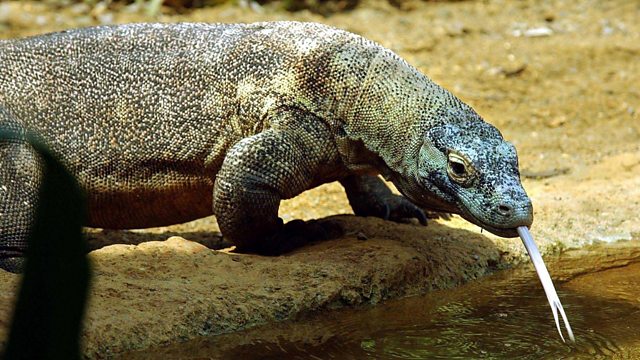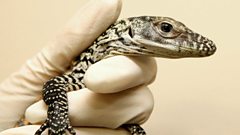The power of celibacy
A virgin birth may be miraculous to us, but for some species itβs a winning evolutionary strategy. Lucy Cooke meets natureβs ultimate self-cloning sisters.
You might think that sex is essential for life, but you'd be wrong!
Lucy Cooke travels to the Hawaiian island of Oahu to meet a community of mourning geckos - self-cloning sisters who have done away with males altogether.
An array of reptiles, amphibians and fish, along with a host of spineless wonders, from snails to spiders, can reproduce without sex. It's what biologists call parthenogenesis, from the Greek meaning βvirgin birthβ.
Many, like the mourning gecko, make great βweedβ species. They're explosive opportunists capable of rapidly colonising new territory, as they donβt need to waste energy finding a mate. But without the mixing up of genes, that sex with a male provides, they are less able to adapt and change.
So sex pays if you donβt want to go extinct.
Yet there is one self-cloning sister that defies that theory - the Bdelloid Rotifer. Living for millions of years and comprising over 450 species, these microscopic water dwelling creatures have conquered the planet. They get around the drawbacks of no sex, by stealing genes, and escape disease by desiccating and then coming back to life.
Producer: Beth Eastwood
Picture: Female Komodo dragon at London Zoo, Credit: Matthew Fearn/PA
Last on
Clip
-
![]()
How a Komodo dragonβs βvirgin birthβ shocked zoo keepers
Duration: 02:12
Broadcasts
- Mon 1 Feb 2021 20:32GMTΒιΆΉΤΌΕΔ World Service Online, Americas and the Caribbean, UK DAB/Freeview, News Internet & Europe and the Middle East only
- Mon 1 Feb 2021 21:32GMTΒιΆΉΤΌΕΔ World Service Australasia, South Asia & East Asia only
- Tue 2 Feb 2021 04:32GMTΒιΆΉΤΌΕΔ World Service
- Tue 2 Feb 2021 11:32GMTΒιΆΉΤΌΕΔ World Service
- Tue 2 Feb 2021 18:32GMTΒιΆΉΤΌΕΔ World Service East and Southern Africa & West and Central Africa only
- Mon 8 Feb 2021 00:32GMTΒιΆΉΤΌΕΔ World Service
Space
The eclipses, spacecraft and astronauts changing our view of the Universe
The Curious Cases of Rutherford and Fry
Podcast
-
![]()
Discovery
Explorations in the world of science.




